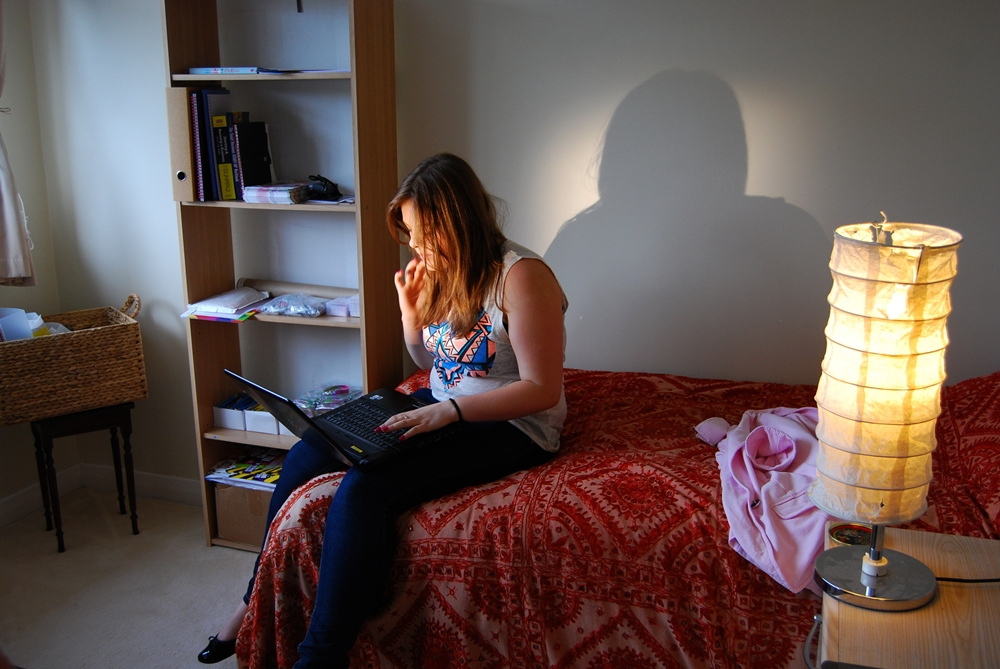Samuel Fawcett argues for instilling a healthy degree of scepticism in our young people.

Society is made in the classroom. Teaching young people how to think critically is essential to an open, progressive society. Photo: Ilmicrofono Oggiono.
The United Kingdom is a credulous nation. Polling carried out by Ipsos Mori in 2013 showed that the general public are wrong about almost everything. From welfare, to crime, to immigration, public perceptions are a long way from the actual facts. It would seem that people are similarly susceptible to pseudoscience. YouGov polling shows that 39% of Britons believe that homeopathy is an effective treatment for illness and 20% that star signs ‘can tell you something about yourself or another person’.
So why are we so wrong about stuff? The reasons are manifold, and there is no simple remedy. Obviously the media plays a large role in shaping our perceptions about popular issues. It is no coincidence that the levels of immigration are believed to be higher than they are and the migrants themselves perceived to be morally degenerate when two out of three of the nation’s most-read papers push vehemently anti-immigrant rhetoric. However, to a certain extent these publications are simply catering to pre-existing prejudices, knowing that by doing so they will increase sales. When it comes to pseudoscience, many people are distrustful of large organisations, seeing them as removed, malicious and esoteric. Hence people are more likely to trust a friend offering them homeopathic pills than they are ‘big pharma’.
This disjunction between perception and reality is a key area in which Humanism can play a big role. At the heart of our movement is the desire for humans to live rational and harmonious lives. Obviously we do not seek to force everyone into a life of rigid, sceptical thinking – ‘we cannot live by reason alone’ as Sam Harris said. It is of no particular consequence to us if someone gets comfort from believing their deceased partner is watching over them or their horoscope will improve their sex life. But there is quite clearly an issue when lack of inquiry leads to the bigotry and spite which saw 50% of people agree with Nigel Farage’s view that immigrants suffering from AIDS should be denied NHS treatment for five years.
So what can we do about it? Obviously no one is going to shut down the Sun or the Daily Mail, and, much as it would save me a considerable number of blood vessels, it would be wrong to do so. Likewise, we cannot simply change fundamentals of human psychology. However, I believe that we can change people’s views without doing the impossible or betraying Enlightenment values of freedom of expression. To do so, we need to give people the tools to analyse, dissect and discuss from a young age.
Earlier this year I was talking with one of my French lecturers about what he thought of teaching in the UK. Instantly he replied that he hated it, and that he felt as though he were an activity leader rather than a tutor. He complained that we are not taught to think, but simply to regurgitate. A strong criticism, but one which I believe is grounded. In my own academic experience, I was never encouraged to question until university. Indeed, questioning was in effect discouraged at secondary school. Even in A-Level Law, my class was told to learn the essay answer to the question on Law and Morality ‘almost off by heart’ and repeat it in the exam in our own words. I do not think it is obtuse to ask that Law students be asked to seriously consider the moral implications of law-making rather than what the AQA exam board believe will score you the most marks.
This lack of inquiry needs to be remedied by schools and colleges internalising critical thinking skills as a key part of their teaching. Some would say that this would be too dull and complex for students to take on, but I do not believe that is true at all. The ‘naïve young idealist’ stereotype exists for a reason, being that younger people tend to be far more sceptical than their elders, and are more than happy to question authority. Why don’t we utilise their healthy scepticism?
An obvious first step is replacing Religious Education with the broader ‘Philosophy and Ethics’ specification which OCR have been trialling. This subject would still teach about the world’s religions, but would also include the basics of philosophy. It would be a perfect course to bring in the ideas of bias, argument and evidence. But we must not be content with simply adding a topic to the curriculum. All academic subjects should be taught with an eye on why we know the facts that we do or how we can analyse the ideas put forward; from looking at the power of language used by politicians and the media in English lessons, to how science must be its own fiercest critic if it is to be useful.
Correctly done, such an approach does have the potential to change how people think. Studies in France have shown that there is no correlation between people’s belief in pseudoscience and their level of scientific education. However, they did find that when people were taught the method behind science rather than just the facts, their acceptance of pseudoscientific beliefs fell sharply.
It is pivotal that our students come out of education with a critical mind that can take things at more than face value. Humanists desire a society where people treat each other respecting their worth as individuals rather than seeing them as hate groups that have been homogenised by misconceptions and unfair portrayals. Likewise, we do not wish to see people beholden to superstitious or fundamentalist ideas that can be damaging both physically and psychologically. Making our education system one that teaches scepticism rather than credence would not make this society a reality, but it would go some way to creating it.
Samuel Fawcett is the Deputy Editor of Anticipations, the magazine of the Young Fabians. He tweets at @SamFawcett92.


